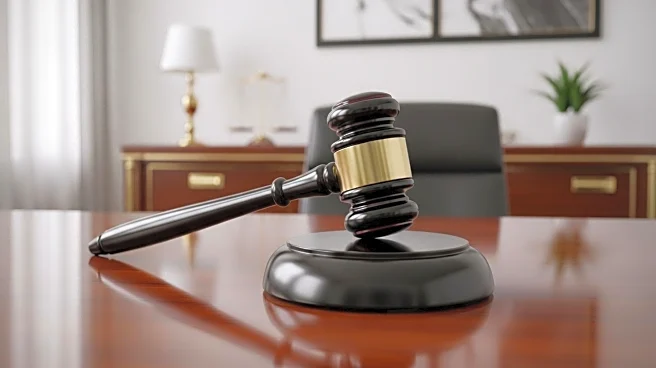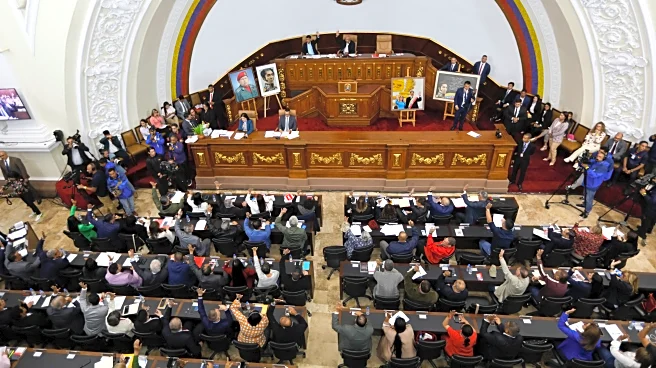What's Happening?
Mark Steven Zuckerberg, an Indianapolis-based bankruptcy attorney, is suing Meta for repeatedly shutting down his Facebook pages due to confusion with CEO Mark Elliot Zuckerberg. The attorney claims that his business account has been suspended five times in the last eight years, costing him thousands in advertising and client communication. Despite providing identification, Meta's systems have flagged his account for using a 'false name' and 'impersonating a celebrity.' Meta has reinstated his account, acknowledging the error and working to prevent future occurrences. The attorney seeks restitution for lost fees and advertising costs.
Why It's Important?
This lawsuit highlights the challenges faced by individuals with names similar to high-profile figures, particularly in the digital age where automated systems can misinterpret identity. The case underscores the potential financial and reputational impacts of such errors, especially for professionals relying on social media for business. It also raises questions about the effectiveness of Meta's moderation and identity verification processes. The outcome of this lawsuit could influence how social media platforms handle identity verification and account suspensions, potentially leading to policy changes that affect millions of users.
What's Next?
The attorney is asking for restitution and a permanent resolution to the account suspension issues. Meta's response and any potential settlement or court ruling could set a precedent for similar cases involving mistaken identity on social media platforms. Stakeholders, including legal professionals and social media users, will be watching closely to see if Meta implements changes to its moderation systems to prevent future errors.
Beyond the Headlines
This case also touches on broader issues of privacy and identity in the digital age. It raises ethical questions about the balance between automated moderation and human oversight, and the responsibilities of tech companies to protect users from identity-related errors. The situation could prompt discussions on the need for more robust identity verification processes and the potential for legal reforms to address such challenges.











